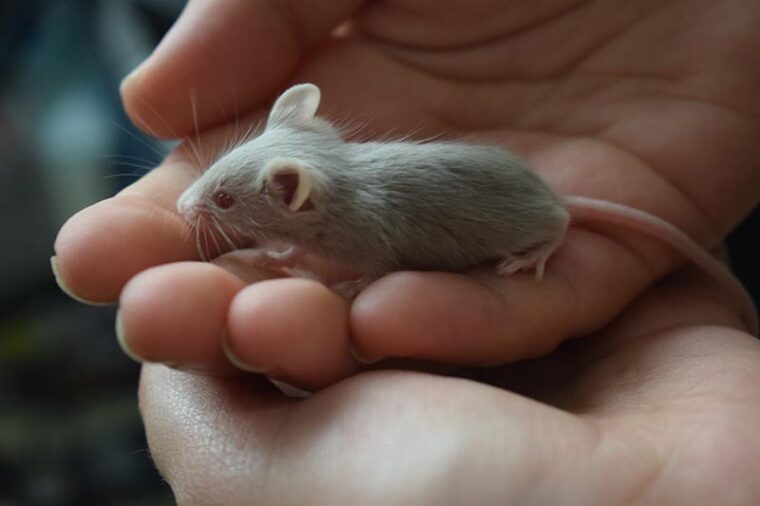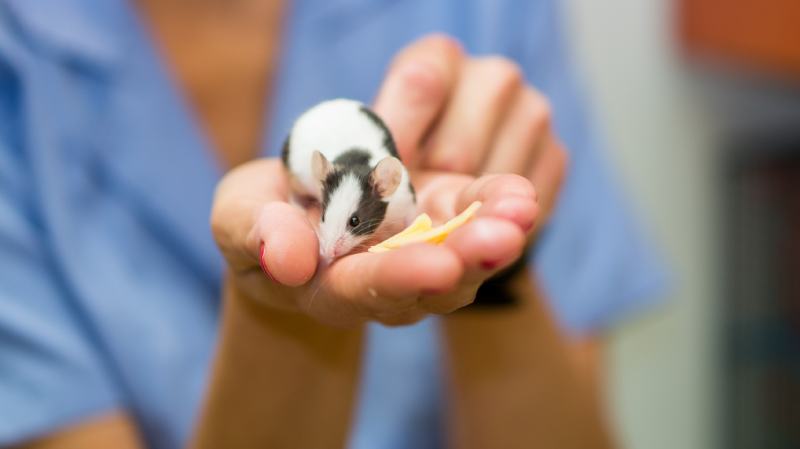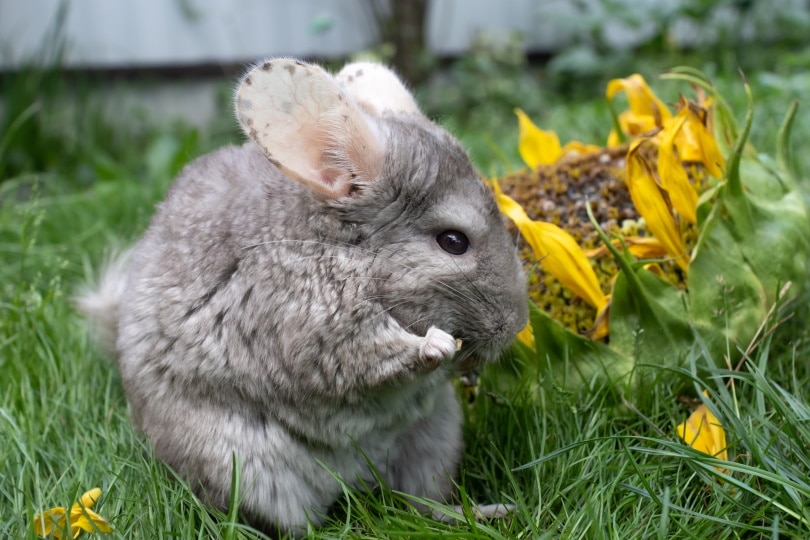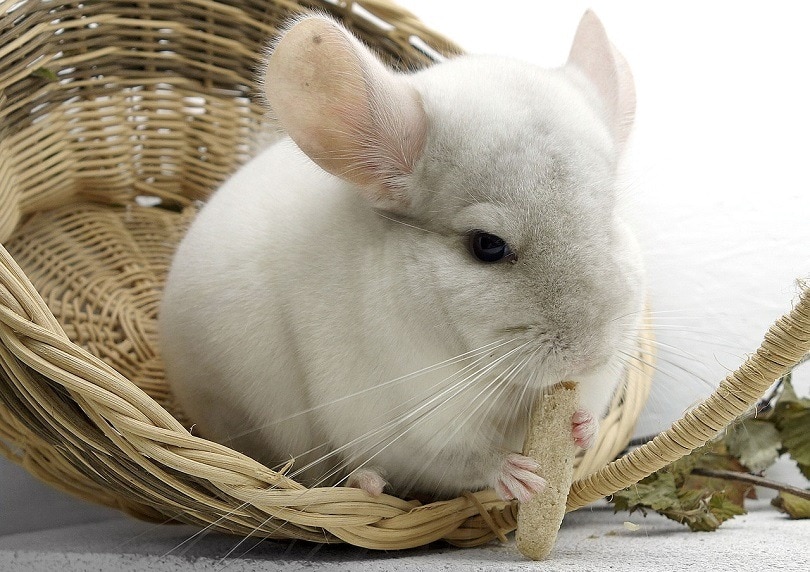
Click to Skip Ahead
Mice can make great pets; they are relatively easy to look after, and only have a lifespan of 1–3 years, so they are not a lifelong commitment. However, mice are often associated with unwanted house guests that leave a trail of urine everywhere they go, which can be a natural concern for a new owner.
Unfortunately, there’s no getting around the fact that mice pee a lot. They can pee up to 0.5 milliliters (ml)– 1 ml a day, but the good news is that they are small spots that can easily be cleaned up. You can sometimes toilet train mice to use one area or a tray in their cage, but it doesn’t necessarily stop them from toileting when you have them out on your lap.

How Much Do Mice Pee?
Mice pee frequently, but the amount depends on a few factors. Generally, mice can pee 0.5 ml–1 ml over a day, with male mice typically urinating 1.5–2 times as much as females. The amount of pee you need will also depend on how many mice you have, and other factors such as their sex, how much water they drink, and what foods they eat.
Five separate studies were conducted to investigate theories regarding the variables influencing the amount of pee that male and female house mice excrete each day.1 Over 24 hours, urine was collected in metabolism cages.2 For mice of the same age, the average daily urine output increased with age for both sexes.
During the reproductive cycle, female mice in the estrus stages (receptive to mating) produce more urine than females in diestrus (not ready to mate). During the final two-thirds of pregnancy, there is a rise in daily urine production, which continues to be high during lactation.
Male mice that have undergone castration had less urine produced each day than female mice that have undergone ovariectomies. There are differences in urine production between dominant and subservient male mice but not between female mice.

Can You Smell Mouse Pee?
Mouse urine smells, but its odor is less intense than a dog’s or cat’s urine. In fact, it is likened to the smell of popcorn by other mice owners, which is rather pleasant. However, you may be an owner who can’t tolerate the smell, so it comes down to perception, but once you get to know the smell, you will immediately become aware of it. However, it takes a lot of urine for the odor to become noticeable.
Wild mice typically don’t have a particular toilet spot where the urine accumulates, but they dribble small amounts as they run around. A mouse will deposit a few hundred pee droplets within a full day. Pet mice will often use a particular area in the cage for toileting, making it easier to stay on top of it.
Most of the time when people comment on the smell of mouse pee, it’s the pee-soaked bedding that’s the problem. Depending on how many mice you have, giving that latrine a clean once or twice a day will go a long way to reducing the amount of odor buildup.

Is Mouse Urine Harmful to Humans?
The urine of wild mice has the potential to be harmful to humans due to the diseases they may carry. However, the chances of your pet’s urine making you sick is almost nil, but it’s something that you should be cautious about.
Lymphocytic choriomeningitis virus (LCMV) is an infection that can be passed to domestic rodents from wild rodents, and they often carry the infection for life. The infection can cause meningitis and is shed through the mice’s urine, saliva, and feces. If humans have broken skin and come into contact with the virus, the virus can be passed on.
Thankfully, this is very uncommon, but practicing good hygiene and cleaning habits is always sensible to minimize the risk. When cleaning out your pet mouse’s cage, always wear gloves and clean it thoroughly because it’s always better to be safe than sorry.

Can Pet Mice Be Litter Trained?
Pet mice can be litter-trained. While it might require plenty of patience, it’s not impossible. You can purchase a small litter box for their enclosure and fill it with a paper-based product different from their cage bedding. Then, place urine-soaked paper in the litter box so the mice know where to go. If you happen to catch your mice urinating in their litter box, offer a treat as a reward! Until your mice are litter trained, leave behind some waste in the litter box every time you clean it.
Don’t anticipate litter training to go perfectly. In addition to using the litter box sometimes, your mice will probably still wish to mark other areas of their house with urine or feces.
Tips for Caring for Pet Mice
Even though pet mice don’t live for long, they still deserve the care and attention you would give any pet. Here are some tips for keeping your pet mice happy and healthy:

In Conclusion
Most pet mice produce between 0.5 ml and 1 ml of pee daily. However, the amount will depend on a few factors, including how many mice you decide to keep. It is better to have more than one mouse since they are social animals. Pet mice can be litter-trained to make cleaning easier, and their urine doesn’t smell as potent as a pet dog or cat.
You can also reduce the amount of work by ensuring you have a cage that is easy to clean and choosing neutered male mice. Replace their litter regularly and ensure you wear gloves to stay safe. Like all pets, your mice need the correct care to live a happy life.
Featured Image Credit: Furiarossa, Shutterstock









